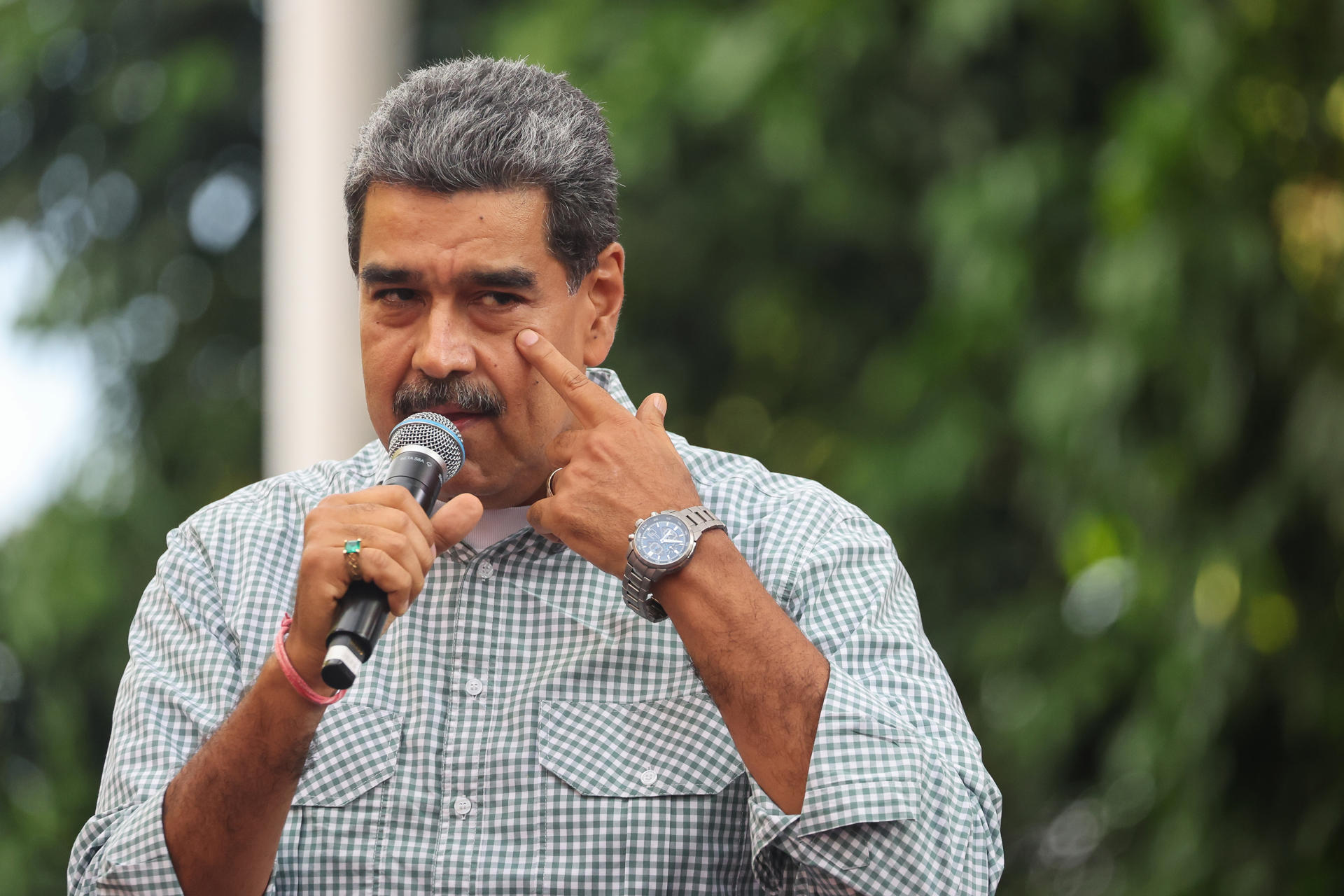Republicans and Democrats together against Nicolás Maduro

Republicans called for a pause in oil licenses and more pressure on the Venezuelan government, Democrats regretted that diplomacy was not bearing fruit, but both They agreed to stand up to the “dictatorship” of Nicolás Maduroin a session this Friday in the US Congress.
In a highly polarized country, especially with less than 50 days to go until the US presidential election, it is difficult to find common ground between Republicans supporting Donald Trump and Democrats behind President Joe Biden and Vice President Kamala Harris.
But a session of the House of Representatives subcommittee on Latin America and the Caribbean made it clear that they are joining hands against what they call a “dictatorship” of Nicolas Maduro.
The harmony ends here. They disagree on how to deal with it.
With the impetus that characterizes her, Republican Elvira Salazar denounced “a cruel contradiction.”
“Maduro has intensified his brutality” and meanwhile “the American and European oil companies (…) have increased their pumping and their profits, directly feeding the tyrannical machinery of oppression,” he condemned.
Venezuela’s oil industry has been under sanctions since 2019, but Washington grants individual licenses to operate in Venezuela to several companies, including the US-based Chevron, the Spanish Repsol and the French Maurel & Prom.
Venezuela is the country with theoretically the largest hydrocarbon reserves in the world, although production has fallen dramatically from 3 million barrels per day more than a decade ago to about 870,000 barrels per day today.
Post-election repression in Venezuela
Salazar accused the oil companies of having “blood on their hands” for profiting despite the 27 deaths in the protests that broke out when Maduro was re-elected after the July 28 elections.
The Post-election repression “has been severe and unprecedented in the country’s history”“said Enrique Roig, a senior State Department official.
The opposition led by María Corina Machado claims that Edmundo González Urrutia won the presidential election. Washington agrees with him and puts pressure on Caracas, but the Chavista government does not give in.
So what can be done?
Salazar is clear: “a pause in each oil license,” recognize González Urrutia “as the legitimate president” and “put a price of 25 million dollars” on the “heads” of Maduro and his collaborators with the hope that “someone in the Venezuelan armed forces is highly motivated” to hand them over.
“If we, the Biden administration and the Republicans, do not fix this mess, “We’re going to have another 4 million Venezuelans calling at our southern border tomorrow,” he warned.
Salazar called on Kevin Sullivan, another senior official in the State Department’s Latin America office, to provide explanations.
Why did they authorize the licenses and are they going to give more? he asked.
He responded evasively.
“Treasury administers the licenses and we continue to review our sanctions policy,” he said.
“Don’t try to fool me, Mr. Sullivan, we know that the State Department is the one that dictates foreign policy,” she replied.
“We are always evaluating how we can best utilize our sanctions,” Sullivan said, leaving open the possibility of suspending licenses.
Democrat Joaquin Castro was in favor of sanctions but said Washington should “establish them in a way that puts enough pressure on a government to do the right thing (…) and at the same time does not devastate an economy so much.”
In his opinion, “the United States is not and cannot be the main actor,” but must cooperate with its “allies” in the region.
The role of Brazil, Colombia and Mexico on Maduro
“Our role is and must be to support” diplomacy, he said.
However, he is concerned that Brazil, Colombia, Mexico and Qatar, which acted as intermediaries in the Venezuelan crisis, “seem to be inactive at the moment.”
“I don’t think any of our partners have seen any real openness or flexibility from Maduro so far,” Sullivan agreed, still optimistic because “a lot can happen between an election and an inauguration,” scheduled for January.
“Unfortunately, Brazil, Colombia and Mexico have remained neutral,” said fellow Democrat Greg Stanton.
Republican Rep. Mark Green said Cuba is helping Maduro stay in power, which Sullivan confirmed but declined to say whether the Biden administration is doing anything to stop it.
Independent journalism needs the support of its readers to continue and ensure that uncomfortable news that they don’t want you to read remains within your reach. Today, with your support, we will continue working hard for censorship-free journalism!
